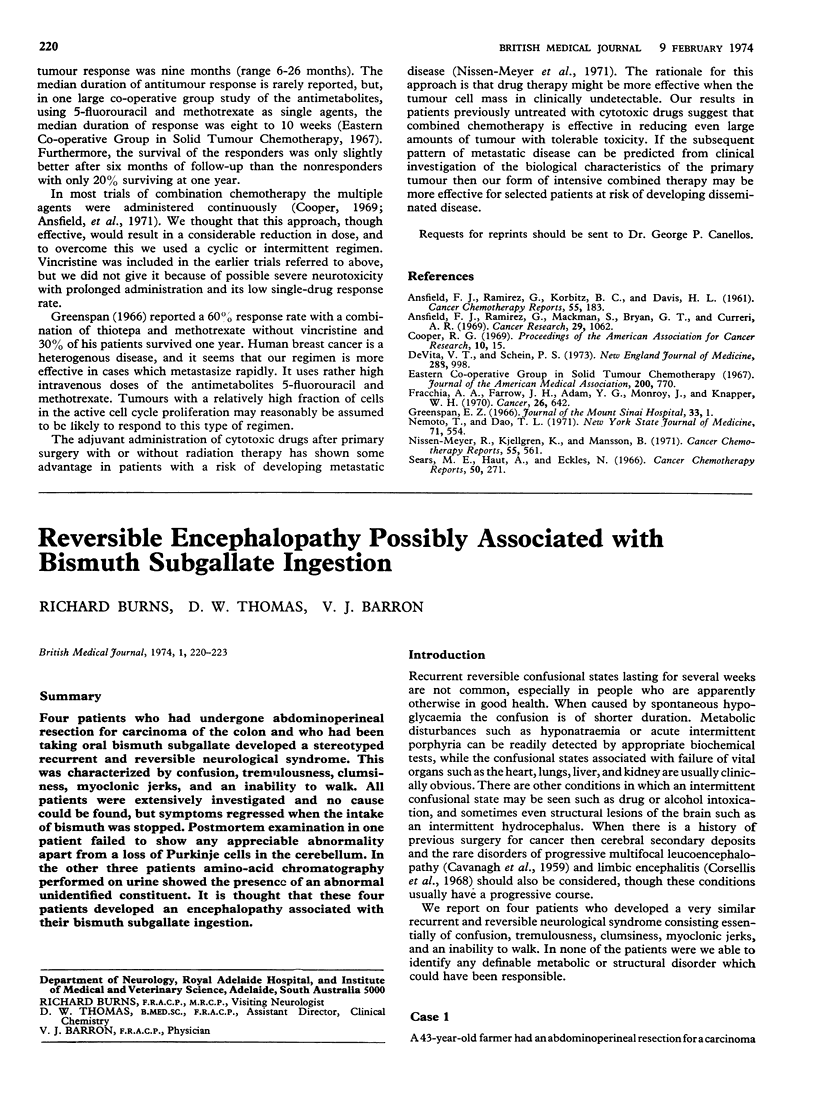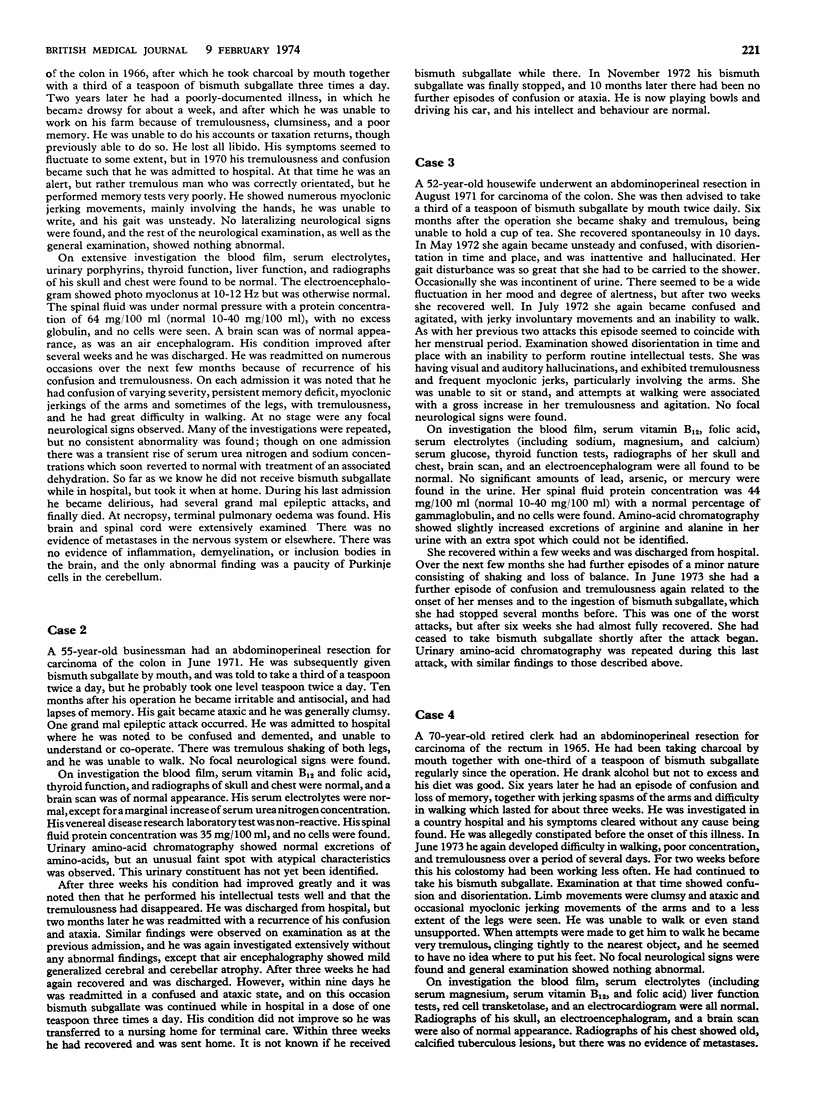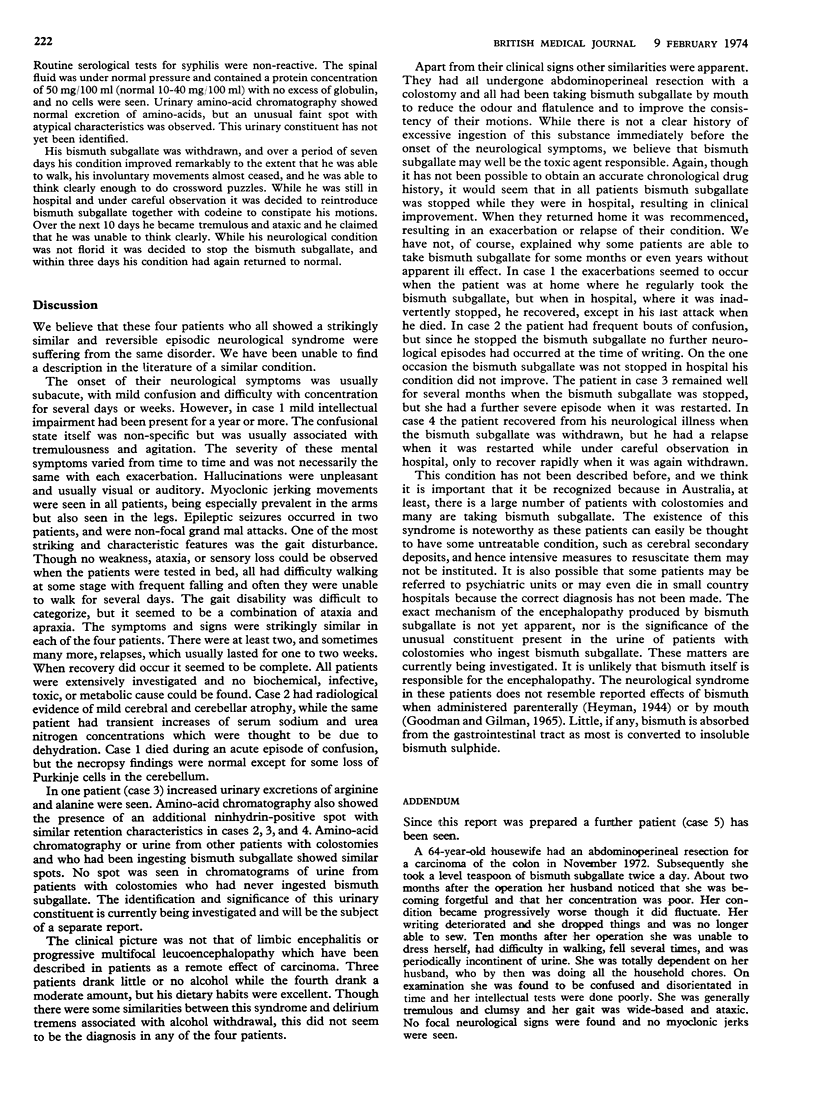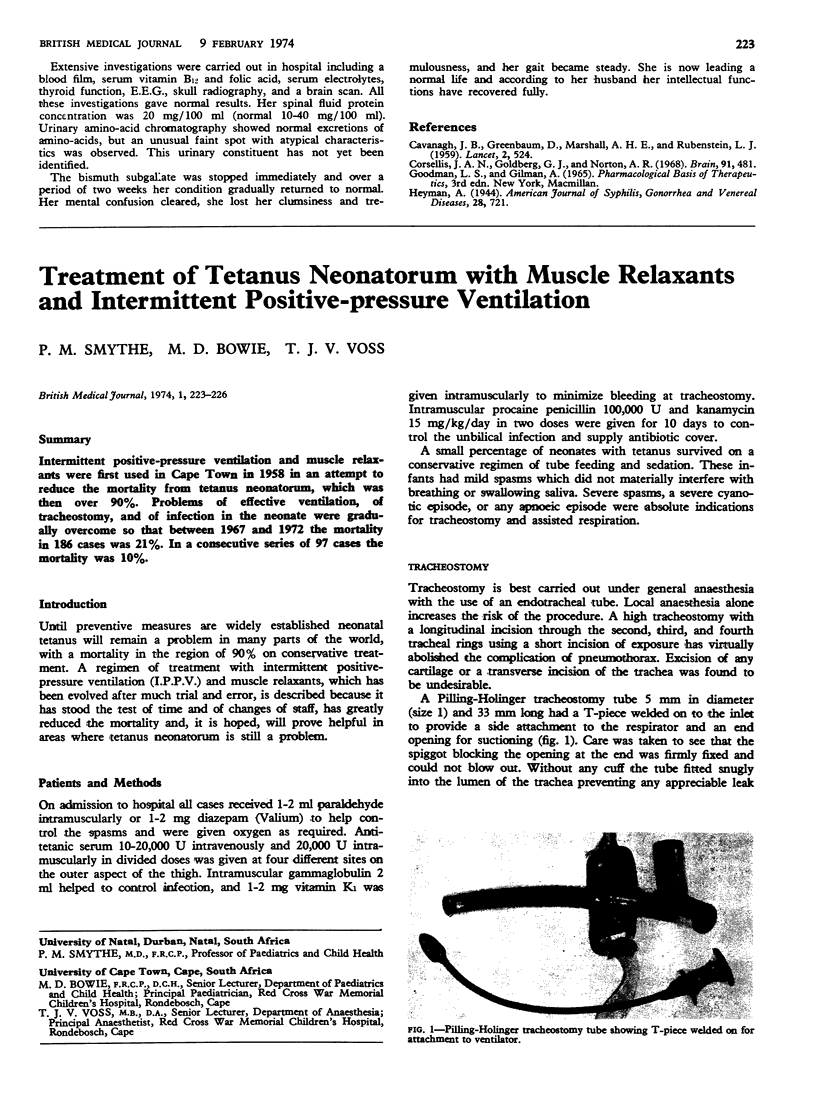Abstract
Four patients who had undergone abdominoperineal resection for carcinoma of the colon and who had been taking oral bismuth subgallate developed a stereotyped recurrent and reversible neurological syndrome. This was characterized by confusion, tremulousness, clumsiness, myoclonic jerks, and an inability to walk. All patients were extensively investigated and no cause could be found, but symptoms regressed when the intake of bismuth was stopped. Postmortem examination in one patient failed to show any appreciable abnormality apart from a loss of Purkinje cells in the cerebellum. In the other three patients amino-acid chromatography performed on urine showed the presence of an abnormal unidentified constituent. It is thought that these four patients developed an encephalopathy associated with their bismuth subgallate ingestion.
Full text
PDF



Images in this article
Selected References
These references are in PubMed. This may not be the complete list of references from this article.
- CAVANAGH J. B., GREENBAUM D., MARSHALL A. H., RUBINSTEIN L. J. Cerebral demyelination associated with disorders of the reticuloendothelial system. Lancet. 1959 Oct 10;2(7102):524–529. doi: 10.1016/s0140-6736(59)91774-x. [DOI] [PubMed] [Google Scholar]
- Corsellis J. A., Goldberg G. J., Norton A. R. "Limbic encephalitis" and its association with carcinoma. Brain. 1968 Sep;91(3):481–496. doi: 10.1093/brain/91.3.481. [DOI] [PubMed] [Google Scholar]



